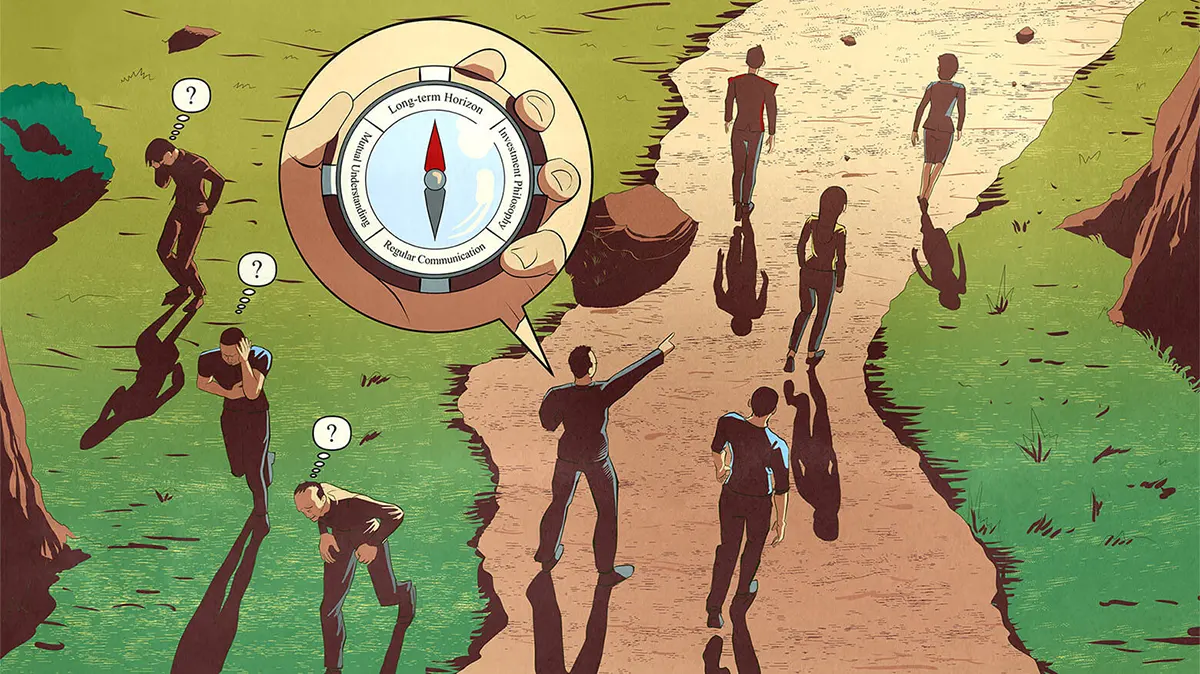We have owned McKesson and its competitor Cardinal Health a few times over the last twenty years. This time around, we bought McKesson in November 2016 when the stock almost halved from a previous high. Going into 2015, MCK’s business was overearning; it was benefiting from patent expirations of branded drugs. As a patent expires, a generic drug company that challenges the branded patent and drug distributors makes temporarily high profits for six months. In 2014–2015 there was a tsunami of branded drugs going generic.
In 2015 MCK was owned by growth investors that were looking for a continuation of double-digit earnings growth and price-to-earnings expansion. In 2016, earnings did not expand but contracted, and growth investors ran for the exits. The stock collapsed. This is when we made our first purchase (in this most recent ownership period). Our rationale was simple: We normalized (lowered) MCK’s margins to pre-branded expiration levels, and the stock looked attractive. There was a lot to like – three drug distributors (McKesson is the largest) control over 90% of the drug distribution market. All three distributors are at scale and none has a competitive advantage against the others, thus none has a reason to start a price war.
Our thesis started to play out. Earnings stopped declining and were about to start growing, and then… Amazon announced that it was entering the retail pharmacy space. MCK stock dropped, and we added to our position. The market had misunderstood the industry structure. Amazon was not going to be competing with McKesson. McKesson has highly specialized warehouses; in fact, it is the Amazon of drug distribution. Amazon will be selling drugs online, and it doesn’t have and most likely is never going to have enough scale to be a formidable competitor to a major drug distributor (read my article).
Our thesis began to prove out. The market started to agree with us, and then…
States sued drug distributors for their complicity in the opioid epidemic. I wrote a lengthy article on this topic. Bottom line: Drug distributors were not responsible for the opioid crisis, but they were the largest identifiable entity, and thus they got sued. The drug distributors could have fought and probably would have won, but the lawsuits would have been a long haul, and thus they have settled with the states.
The opioid mess is mostly behind us. What we have today in MCK is the largest drug distributor in the US, with a very stable and growing business – revenues are growing about 3–5% a year (depending on the level of inflation, maybe even higher). It is a very cash-generative business, doesn’t need much capital to grow, and has a very high return on capital. McKesson has a significant competitive advantage against new entrants. It carries very little debt.
Owning the stock was very stressful at times (this is how opportunities are created) over the last few years but also very rewarding. After accounting for about $25 we made for McKesson’s distribution of shares in Change Healthcare last year, MCK returned about 15–20% a year (this number will vary from client to client).
But the best is yet to come for MCK.
As of this writing MCK is a $220 stock. Its immediate earnings power is around $21 (up from $13–15 at the time of our first purchase). Historically, MCK has traded at about 15–17 times earnings, which would suggest the potential for a $315–350 stock price. The combination of revenue growth and share buybacks should result in high single-digit earnings growth. In four years, we get earnings of about $27–30, which gives us a price of about $400–500.
McKesson is a perfect business for the uncertain environment that lies ahead of us. The demand for its product is not dependent on the whims of the global economy. It can pass price increases on to its customers.
Pause for a second and ask yourself a question: How does the silliness of the stock prices of AMC, GameStop, or some overpriced electric vehicle company impact McKesson? It doesn’t.
Key takeaways
- McKesson’s stock presented a value opportunity in 2016 when growth investors fled due to earnings contraction, allowing us to buy at an attractive price after normalizing margins.
- Despite market fears about Amazon’s entry into the pharmacy space, McKesson’s position as a major drug distributor remained strong due to its specialized infrastructure and scale.
- The opioid crisis lawsuits created another buying opportunity for McKesson, as the market overreacted to litigation risks that have since been largely resolved through settlements.
- McKesson’s business model is stable and growing, with high cash generation, little capital needs, and a strong competitive advantage, making it well-positioned for uncertain economic times.
- Looking ahead, McKesson’s earnings power and historical valuation multiples suggest significant upside potential, with projections indicating a possible stock price of $400-500 in four years.









Very telling review Vitaliy why you are so bullish on this stock.
Should it be a member of a retiree’s stock portfolio especially since its dividend is minuscule?
Thank you for your continued time, interest, and consideration.
Best Regards,
Jay and Shirley Berns